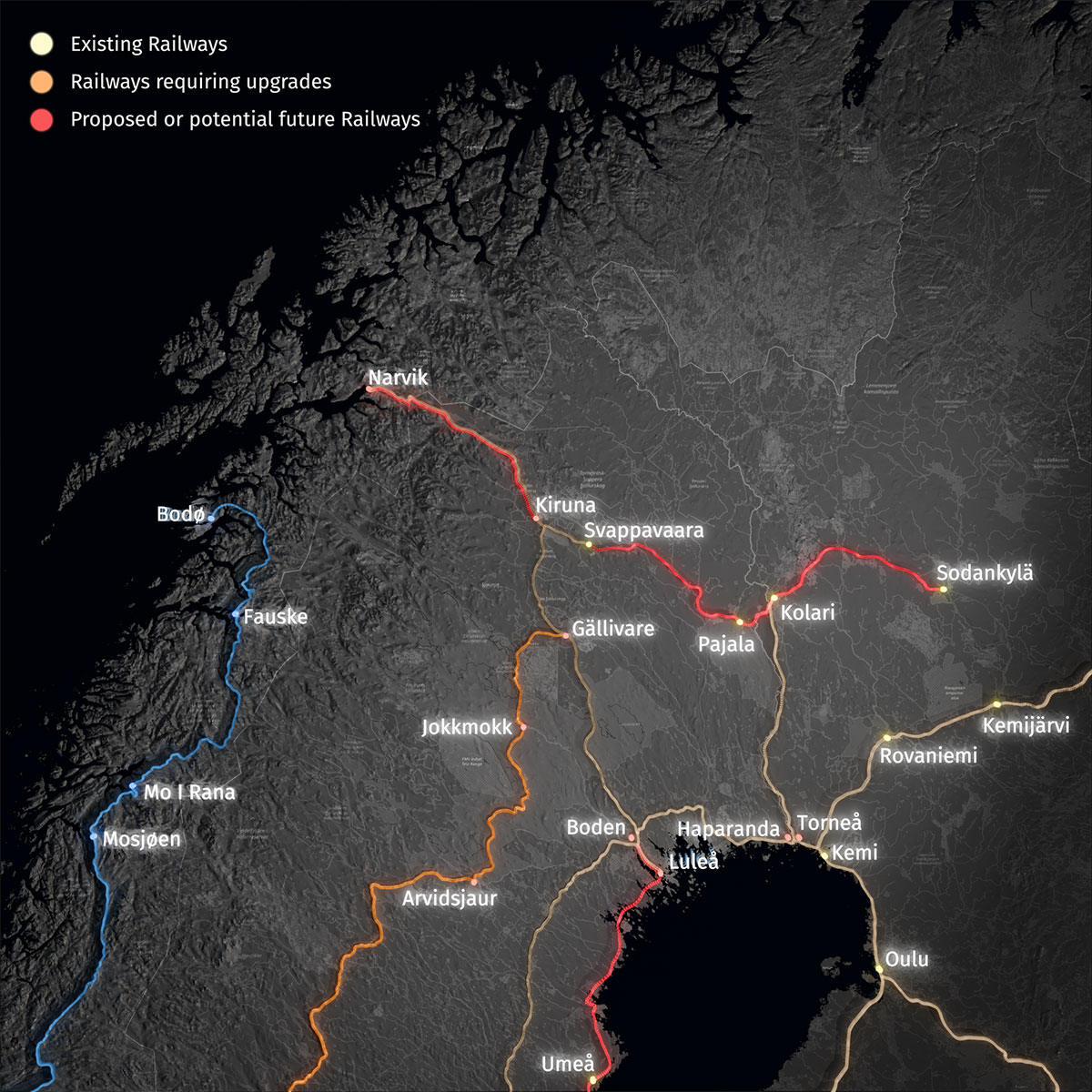Strategic agenda: Connecting Oulu–Luleå–Narvik as the main line in a unified Arctic rail system
The Northern Calotte plays a critical role in Europe’s industrial value chains, export logistics, civil preparedness and security. A resilient and well-connected east–west railway system linking Finland, Sweden and Norway is essential for unlocking this potential.
Arctic Rail’s strategic focus is the Oulu–Luleå–Narvik corridor — the backbone of the Arctic rail system and the only continuous railway connection between the EU and an ice-free Atlantic port. While parts of this corridor are already recognised in European planning frameworks, the full system perspective is still missing. Without adequate capacity and resilience on the Iron Ore Line (Luleå–Narvik), investments across the entire Northern Calotte risk being delayed or lost.
Our agenda is therefore to promote a coordinated, trilateral approach where capacity upgrades, operational resilience and new connections are developed as one integrated system — enabling industrial investments, cross-border mobility and long-term security.
To support this, Arctic Rail works to advance the following priorities:
- Develop the full Oulu–Luleå–Narvik corridor as a coherent east–west system
- Increase capacity and resilience on the Iron Ore Line, including passing tracks and, in the long term, double track solutions
- Strengthen cross-border connectivity at Tornio–Haparanda as part of the wider Finnish–Swedish system
- Improve trilateral co-planning between authorities, infrastructure managers and industry
- Align traffic planning, maintenance strategies and operational standards across Finland, Sweden and Norway
Capacity increases on the Iron Ore Line are not an isolated measure. They are a key enabler for investment decisions — in Norwegian Atlantic ports and logistics, in northern Finland’s rail development, along Inlandsbanan, and in future connections towards Kolari, Sodankylä and Rovaniemi.
Why this agenda
Reliable Arctic rail infrastructure is a prerequisite for Europe’s green transition, securing flows of critical raw materials, and attracting skills and investment to the region. It is also essential in an increasingly uncertain security environment, where cross-border transport resilience and redundancy are of growing importance.
Why a trilateral coalition is needed
Before Arctic Rail, no cross-border organisation addressed the Arctic rail system as a single, trilateral whole. While many actors have worked constructively at national or bilateral levels, the lack of a shared platform has limited system optimisation and long-term impact.
Arctic Rail fills this gap by providing:
- a North Calotte perspective spanning all three countries
- a neutral platform for aligning public and private interests
- a structure capable of supporting coordinated initiatives, funding applications and targeted actions


Source: European Commission
Read more
